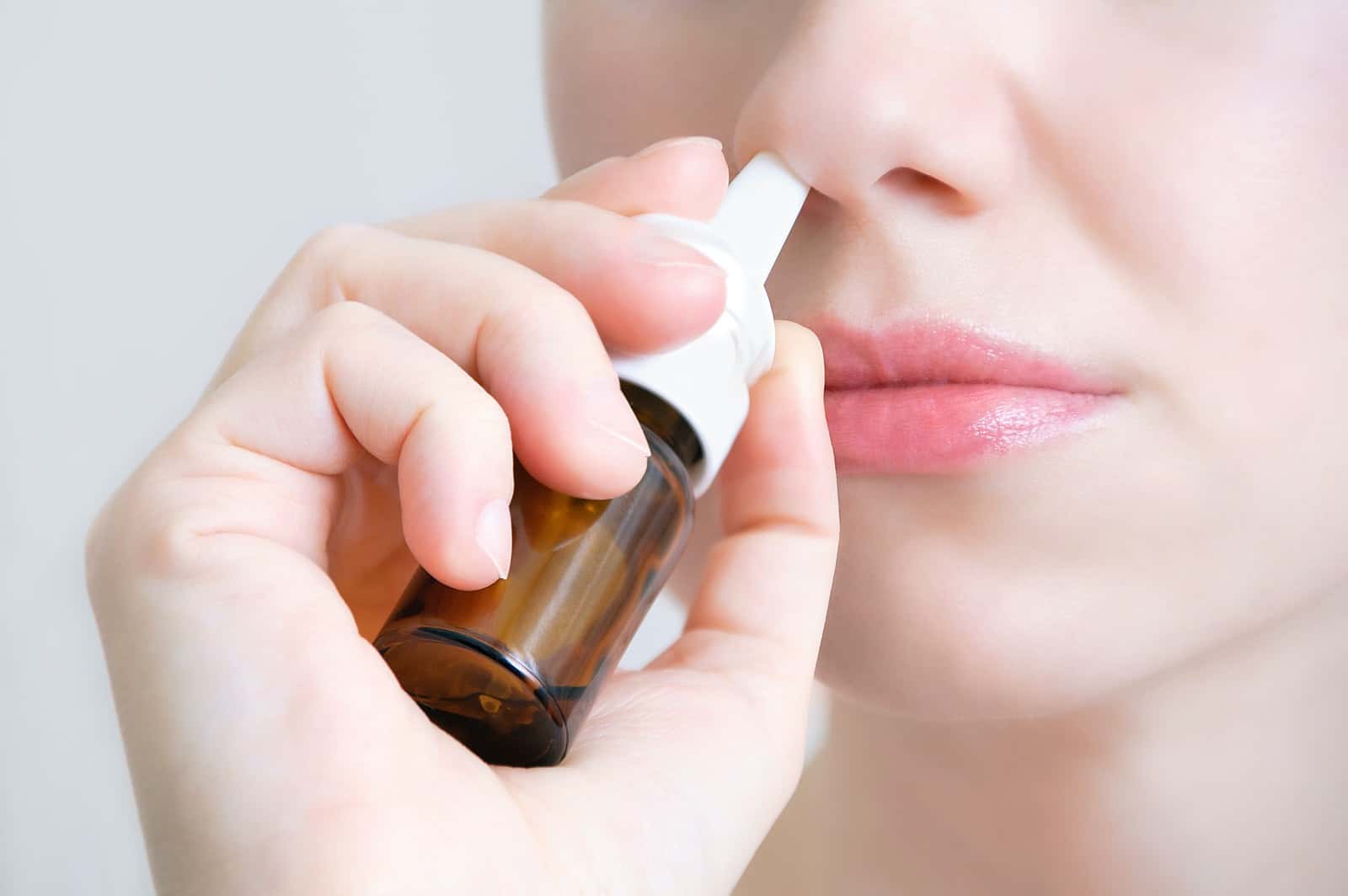
When people come down with sniffles, sneezes, sore throats and coughs, they often turn to pain relievers and fever reducers like acetaminophen or ibuprofen. They sometimes add decongestants or cough suppressants. But none of these OTC products will shorten the duration of the upper respiratory tract infection. There are concerns that some of the ingredients in cough and cold remedies to treat congestion, mucus or coughs are ineffective. Fever reducers may actually impair immunity and prolong a viral infection. Is there anything that could shorten the duration of symptoms.?
Nasal Sprays That Might Actually Work:
A new study conducted in England and published in the journal Lancet Respiratory Medicine (July 11, 2024) offers a different way to deal with cough and cold symptoms.
In a study of nearly 14,000 individuals, researchers tested two nasal spays. One contained saline, while the other was a microgel-based spray designed to trap viruses. It is sold as Vicks-First-Defence and contains hydroxypropyl methylcellulose polymer and buffers. It can be found at Walmart among other retail outlets.
The control group got usual care. In addition, another group had access to a website promoting physical activity and stress management. The nasal sprays were to be used two sprays per nostril at the first sign of symptoms or after exposure to someone with an upper respiratory tract infection. The study lasted more than two years.
The investigators evaluated how many days respiratory tract symptoms affected volunteers. In particular, they tracked coughs, colds, sore throats, sinus or ear infections, influenza or COVID 19. People in the usual care group had logged an average of 8.2 days of illness.
Nasal Sprays Instead of Cough and Cold Remedies:
Those utilizing the microgel spray reported 6.5 days and those using saline spray 6.4 days with respiratory symptoms. This was significantly less than usual care. Those using the website had an average of 7.4 days sick, which was not significantly different. Volunteers using the gel-based spray were more likely to report headache or sinus pain.
Antibiotic use was reduced in all of the intervention groups compared to usual care. The researchers are excited that such simple nasal spray interventions could make a big difference in common respiratory illness.
The authors in their own words:
“This is the largest study to explore the benefit of accessible, easily scalable interventions used preventatively or early in respiratory illness in primary care settings. Compared with usual care, both nasal sprays when used at the first sign of a respiratory tract infection had a clinically significant effect on illness duration and reduced number of workdays lost, and all three interventions reduced antibiotic use.”
Final Words on Cough and Cold Remedies:
We have been writing about cough and cold remedies for a very long time. Here is a recent article on oral phenylephrine, a decongestant that is found in a huge number of cough and cold remedies.
In it we noted the following:
“Please step into my time machine. I was writing the first edition of the book, The People’s Pharmacy (St. Martin’s Press, 1976) 50 years ago.
Here is what I said about phenylephrine way back then:
“Well, what about the decongestant? The most common ingredient is something called phenylephrine. Though it might work if given in a sufficient dose (more than forty milligrams), most nonprescription cold medications have less than half that amount. According to Consumer Reports, ‘the oral dose in two Dristan tablets is only one-fourth of the dosage found to be ineffective in controlled clinical testing.’”
The FDA has known about this for decades. Dr. Randy Hatton and Dr. Leslie Hendeles are two prominent pharmacists who wrote a powerful article in the New York Times (September 29, 2023) titled:
“We’ve Known for 20 Years This Cold Medicine Doesn’t Work”
Here are just a few of their comments about cough and cold remedies:
“How can an ineffective drug discovered nearly 100 years ago and marketed since the 1930s still be on the market, despite decades of drug experts like us prodding the F.D.A. to do something? It boggles the mind, and worse than that, this is only the tip of the iceberg. This decongestant is like many drugs on the market that don’t really provide relief.
“Just ask your local pharmacist about over-the-counter drugs he or she suspects don’t work. It’s an open secret among many of us who study pharmaceuticals that several ingredients, including ones found in common treatments like Robitussin, Mucinex and certain cough syrups, probably don’t work as advertised. Some of these ingredients claim to help people cough up mucus or cough less or to help with asthma symptoms, but studies suggest they don’t work at the current F.D.A.-approved doses.”
Does Anything Work for Cough and Cold Symptoms?
Besides the saline nasal spray and Vicks-First-Defence that was tested in the study described above, there are things that people can use for upper respiratory tract infections. Dr. Roger Seheult, co-founder of MedCram, offers some fascinating insights about practical strategies for staying healthy, especially during and after COVID. Here is a link to our podcast with Dr. Seheult.
We have also interviewed Dr. Tieraona Low Dog about “Natural Ways to Keep Your Immune Response Optimal” at this link. There is no medical doctor better versed in a variety of strategies to deal with coughs and congestion than Dr. Low Dog!
Should you wish to read our suggestions for cough and cold remedies, here is a link to our eGuide to Colds, Coughs & the Flu. In it you will learn about Grandma Graedon’s Chicken Soup recipe, ginger tea, vitamin C, vitamin D, zinc, elderberry, echinacea, andrographis, astragalus, garlic, hot toddies, onion syrup, thyme tea and so much more. You can find it in our Health eGuides section at this link.
Citations
- Little, P., et al, "Nasal sprays and behavioural interventions compared with usual care for acute respiratory illness in primary care: a randomised, controlled, open-label, parallel-group trial," Lancet Respiratory Medicine, July 11, 2024, DOI:https://doi.org/10.1016/S2213-2600(24)00140-1

